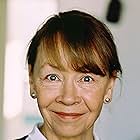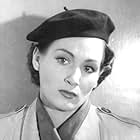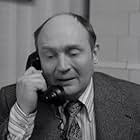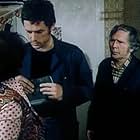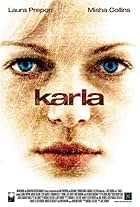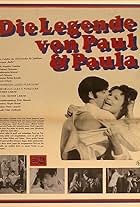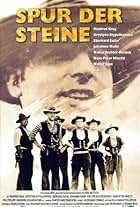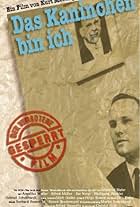An idealistic teacher is shocked to discover her pupils are already cynical and opportunistic. Her colleague soon grows resentful when she uses new and challenging techniques to help her stu... Read allAn idealistic teacher is shocked to discover her pupils are already cynical and opportunistic. Her colleague soon grows resentful when she uses new and challenging techniques to help her students overcome obstacles.An idealistic teacher is shocked to discover her pupils are already cynical and opportunistic. Her colleague soon grows resentful when she uses new and challenging techniques to help her students overcome obstacles.
- Awards
- 2 wins
Klaus-Peter Pleßow
- Uwe Wenndorf
- (as Peter Pleßow)
Jörg Knochée
- Rudi
- (as Jörg Knochee)
Storyline
Did you know
- TriviaEven though the film was produced in East Germany by the government-funded DEFA studio, the shoot could not be completed and the film was heavily edited and finally banned from being shown on the grounds that it was "nihilistic, skeptical and hostile". After the fall of the Berlin Wall, the film was reconstructed by cinematographer Günter Ost and presented at the 40th Berlin International Film Festival in 1990. The final version contains some elliptical editing and a few jump cuts resulting from the incomplete shoot, but the film has a coherent narrative.
- ConnectionsFeatured in Auge in Auge - Eine deutsche Filmgeschichte (2008)
Featured review
This low budget film is a charming and pleasant love story. However, its main importance is the circumstance, that is was banned by the government of the DGR. The script is written by the well-known author Ulrich Plenzdorf (also "Die neuen Leiden des jungen W."). Karla has finished her studies and gets employed in a village at the secondary school. She plans to use a radically different approach to educating, which will put great value on criticism, authenticity and autonomous learning. She also pursues a relationship of relative equality with her pupils. She is tolerant an reconciliatory, in particular with respect to a pupil who evidently opposes the political system (and even listens to the reviled western radio stations). The method alienates her from her bureaucratic colleagues, and clashes with the school curriculum. Fortunately the headmaster is an old Bolshevist, a former resistance fighter who loathes bureaucracy and supports her. He has to continuously protect her from the law-abiding school inspector. In the mean time, Karla gets acquainted with a former journalist. He is now a fisherman, because he could not bear the opportunist censorship, that undermined the credibility of his articles. The two good-natured nonconformists develop a liking for each other, in a tolerant and self-asserted fashion. For some time, Karla caves in to the demands of the school inspector and the board. She soon gets uncomfortable with this situation, feeling that she has become too careful, and as dead as a doornail. So she again picks up her original approach. Then one afternoon she makes the mistake to accompany the rebellious pupil for a stroll on the deserted beach. Not surprisingly he makes a pass at her. Indeed this is the limit, and the school inspector transfers her to another school. The film ends happily, when the fisherman/journalist joins her on the leaving train. Their cheerful natures enables them to shrug off the unpleasant experience. The verdict of the government was that the film encourages anti-socialist behavior. While admitting that the main characters were definitely not textbook cases and far from perfect, this judgment is clearly ridiculous. However, the relations concerning censorship in the GDR were quite complex. It should not be forgotten that the Defa Studios were paid by the state himself. Every produced film ended in a negotiation between the Studios and the state, which anew had to fence off the limits in the freedom of artistic expression. Sometimes parts were cut out, and some films were banned. Some directors even appreciated the deep interest and involvement of the state officials in their creations. The true message of the film Karla seems to be the demand for professional autonomy, the right to nonconformity and an innovative attitude, in a society that was dominated by planning and central organization. Thirty years later the same demand was portrayed in the film Die Architekten, which however is much gloomier. Actually the GDR did experiment with renewer ("Neuerer") movements, but they did not really catch on. The economic system relied more on full capacity use (full employment etc.) and reliability than on efficiency improvements and innovation.
Details
- Runtime2 hours 8 minutes
- Color
- Sound mix
- Aspect ratio
- 2.35 : 1
Contribute to this page
Suggest an edit or add missing content






